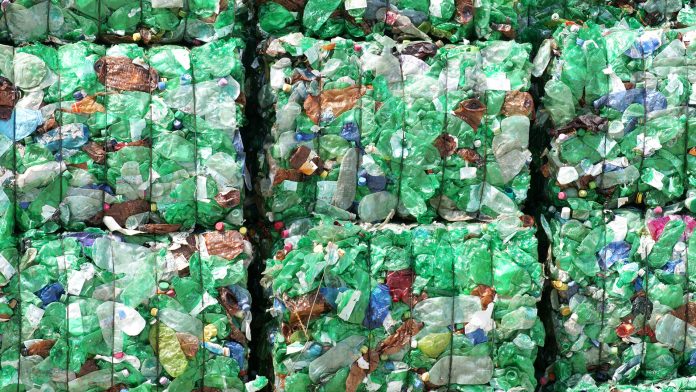Research into developing new plastic recycling methods has received $3m in extra funding after winning a global prize.
The COtooCLEAN project, started by Nextek Ltd and including collaborations from the University of Nottingham’s School of Chemistry, has won the Alliance Prize in Circular Solutions for Flexibles.
The project includes developing a disruptive, waterless, non-toxic cleaning process for polyolefin films that are commonly used for packaging edible and non-edible goods. The process is based on using low-pressure, super-critical carbon dioxide (scCO2), combined with green co-solvents to remove oils, fats, and printing inks, filling a gap in the plastic recycling stream that is currently missing.
How does the COtooCLEAN process work?
Polyolefin films, which are commonly used for food packaging, play a vital part in protecting and extending the shelf life of many foods. To date, food-safe, post-consumer polyolefin films are missing from the plastic recycling stream, as there has been no effective decontamination technology to turn them back into food-grade films.
Currently, the industrial decontamination of post-consumer polyolefin films is performed using a mixture of aqueous or organic solvent washing, drying, and thermal desorption. However, these processes have a high cost, both in terms of the energy required and their environmental impact.
COtooCLEAN is a multi-participant project, that is aiming to fill this gap with its unique process. By using scCO2, the researchers have developed a non-toxic, non-flammable, and non-corrosive solvent that can efficiently remove potential contaminants in films.
Its potential to recycle film back to food-grade quality will facilitate plastic recycling and offer a new PCR materials source, while also facilitating significant reductions in waste to landfill, contributing to significant savings in resources, and reducing carbon emissions and water usage.
ScCO2 is widely used in the extraction of food flavours and components, such as helping to remove caffeine from coffee. Impressively, a simple phase change can isolate dissolved contaminants and free the CO2 for reuse as a solvent. In this way, it does not produce aqueous waste containing impurities and contaminants.
Fast-tracking the project with additional funding
The new plastic recycling process was one of around 600 bids for the Alliance Prize, which was finally whittled down to five contenders. Following a final pitch at the New York Stock Exchange, Nextek was awarded the $3m funding to fast-track COtooCLEAN’s groundbreaking process.
The additional funding will enable the process to decontaminate post-consumer plastic films back to food-grade quality. Professor Edward Koisor, founder of Nextek, accepted the prize and stated: “We now have the potential to make a major contribution to the circularity of films in a global context.”
Professor Steve Howdle, Head of the School of Chemistry at the University of Nottingham, is leading the scientific research on plastic recycling that is being undertaken in collaboration with Unilever, Amcor, Viridor, Allied Bakeries, SUPREX, and Bangor University. He commented: “The School of Chemistry is delighted to be a key part of this project, which works with a large industrial consortium focused on plastic recycling and packaging.
“The sustainable methodologies we are developing have the potential to revolutionise the recycling of food packaging and contribute to a cleaner, greener society.”
New innovations in the plastic recycling process
COtooCLEAN is a unique commercial process and can be integrated into mechanical plastic recycling operations, treating printed and multi-layer films to make them much easier to recycle.
Steve Sikra, Vice President of Alliance to End Plastic Waste, said: “The COtooCLEAN process offers an impactful solution for the high levels of flexible film waste growing around the world.
“By enabling food-grade, film-to-film advanced mechanical recycling, the process will improve the circularity of flexible films by diverting film waste from landfill and lesser value outlets.”
He concluded: “The relatively simple modification to the existing mechanical plastic recycling process makes the potential impact of COtooCLEAN even greater, due to its scalability to global adoption over time.”





